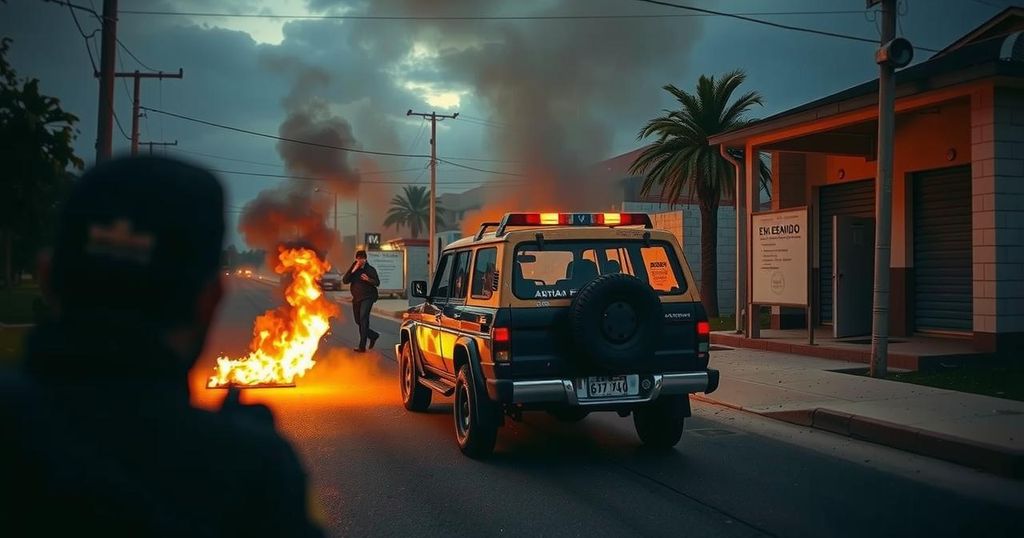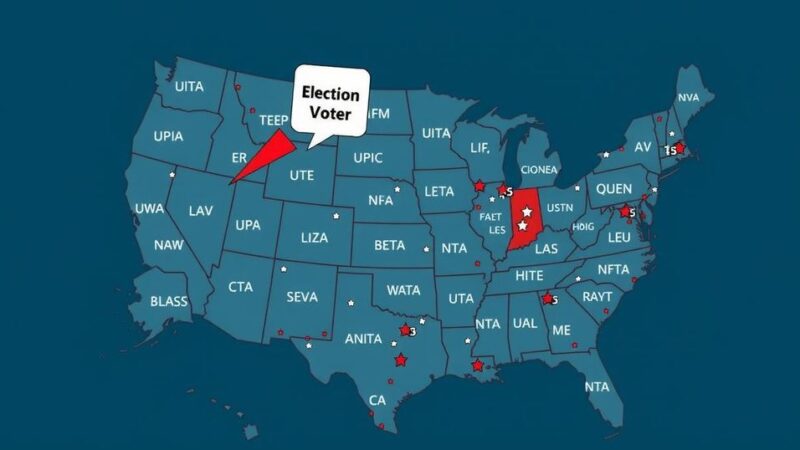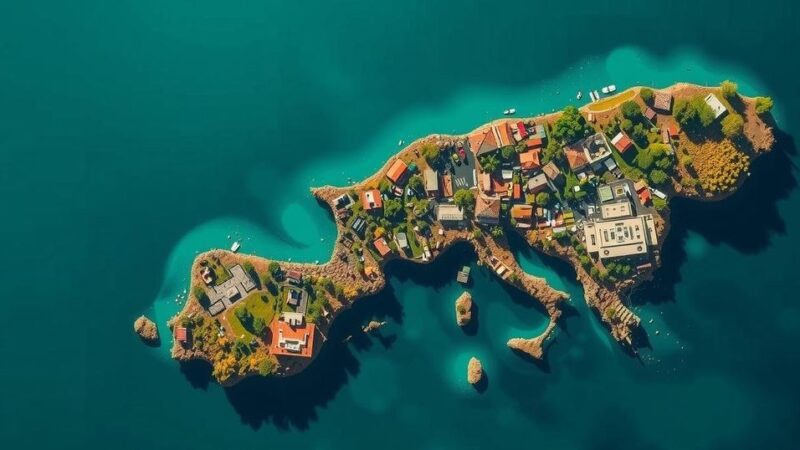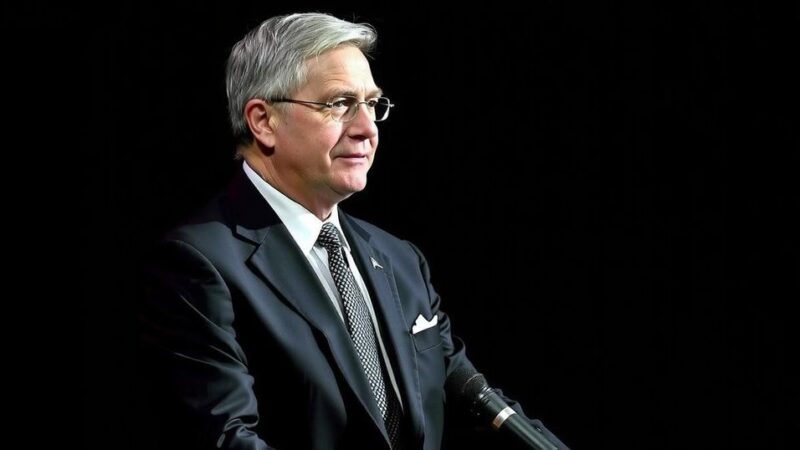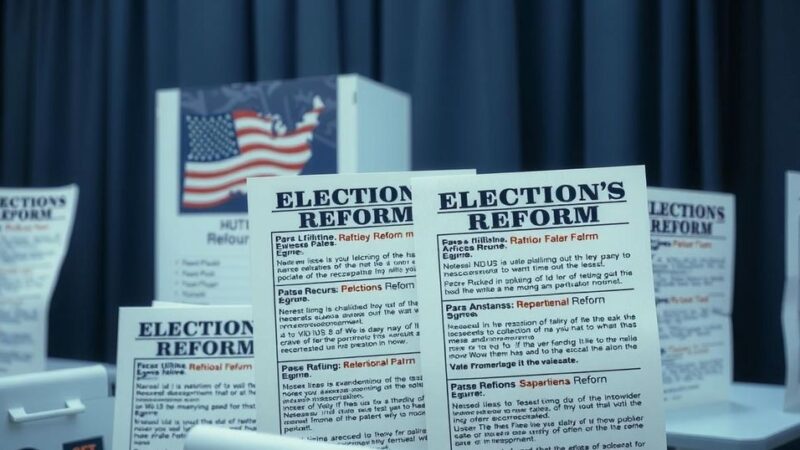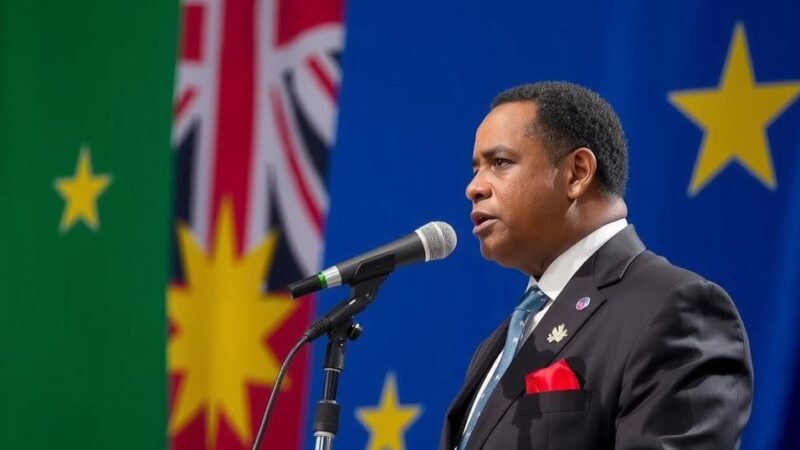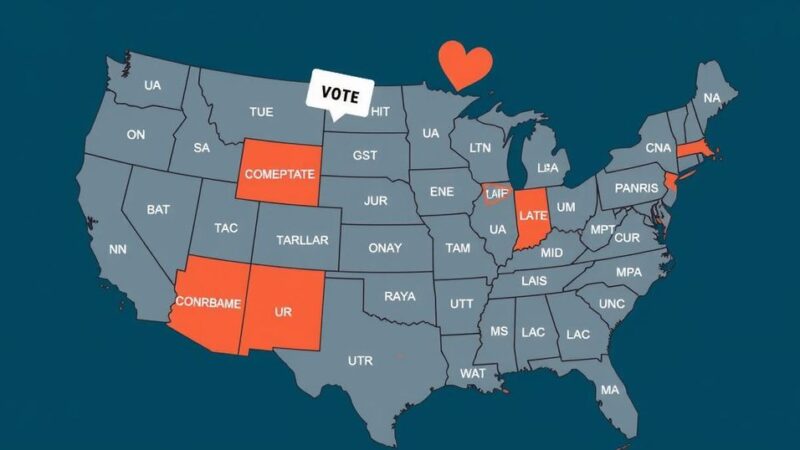Former Bolivian President Evo Morales reported that his vehicle was shot at during rising political tensions with current President Luis Arce. A video posted by Morales shows bullet holes in his car, with claims that government forces may be involved. The incident comes amid accusations of destabilization from Morales against the government, which has strained political relations as Bolivia approaches a crucial election.
Evo Morales, the former president of Bolivia, reported that his vehicle was targeted by gunfire during a tense period of political strife in the country. The incident, captured in a video posted to Morales’ Facebook account, shows him seated in the front passenger seat with visible bullet holes in the windshield, indicating the severity of the incident. The driver of the vehicle is believed to have sustained injuries due to the attack, which Morales attributed to the current government led by President Luis Arce. Morales elaborated on the incident during a radio interview, stating that his car was intercepted by two other vehicles which opened fire on him, narrowly missing him by centimeters. He expressed uncertainty regarding whether the assailants were members of the police or military forces. In response to these claims, Deputy Security Minister Roberto Ríos stated that no police operations had been executed against Morales, and emphasized the authorities’ obligation to investigate the matter thoroughly, regardless of its authenticity. The tense political atmosphere is exacerbated by Morales’ supporters actively engaging in road blockades that have hampered the movement of essential goods throughout Bolivia. The government has accused Morales of attempting to undermine the democratic process amidst growing political unrest, claiming that certain allied groups are armed and advocating for further violence, which has resulted in injuries among law enforcement personnel tasked with clearing the blockades. Morales and Arce, who were once political allies within the Movement for Socialism (MAS), have experienced increasing discord over the past year, reflecting a broader power struggle as the nation approaches the 2025 elections. Accompanying these tensions, Bolivia faces significant economic challenges, such as declining gas production, falling foreign currency reserves, and mounting inflation, all contributing to a complicated political landscape. Furthermore, Morales is facing legal troubles related to allegations of his involvement with minors, prompting a summons by regional prosecutors that he failed to attend, thereby resulting in an arrest warrant – accusations he vehemently denies.
This article highlights the escalating political tensions in Bolivia, notably between former President Evo Morales and current President Luis Arce. Morales, who has a complex history with the government, faces accusations of attempting to destabilize the country amid rising conflicts within the ruling Movement for Socialism party. The confrontation reflects broader societal issues, including economic hardships and allegations against Morales that complicate his political standing. The situation is critical as the country prepares for upcoming elections and grapples with severe economic challenges.
In summary, the ongoing conflict between Evo Morales and Luis Arce illustrates deepening political turmoil in Bolivia. With Morales alleging attempts on his life and the government accusing him of fostering unrest, the situation poses significant risks for stability in the country. As both sides prepare for a potential election in 2025 amid economic pressures, the discord within the MAS party and the escalating violence will need to be addressed to avoid further deterioration of the political climate.
Original Source: www.theguardian.com
